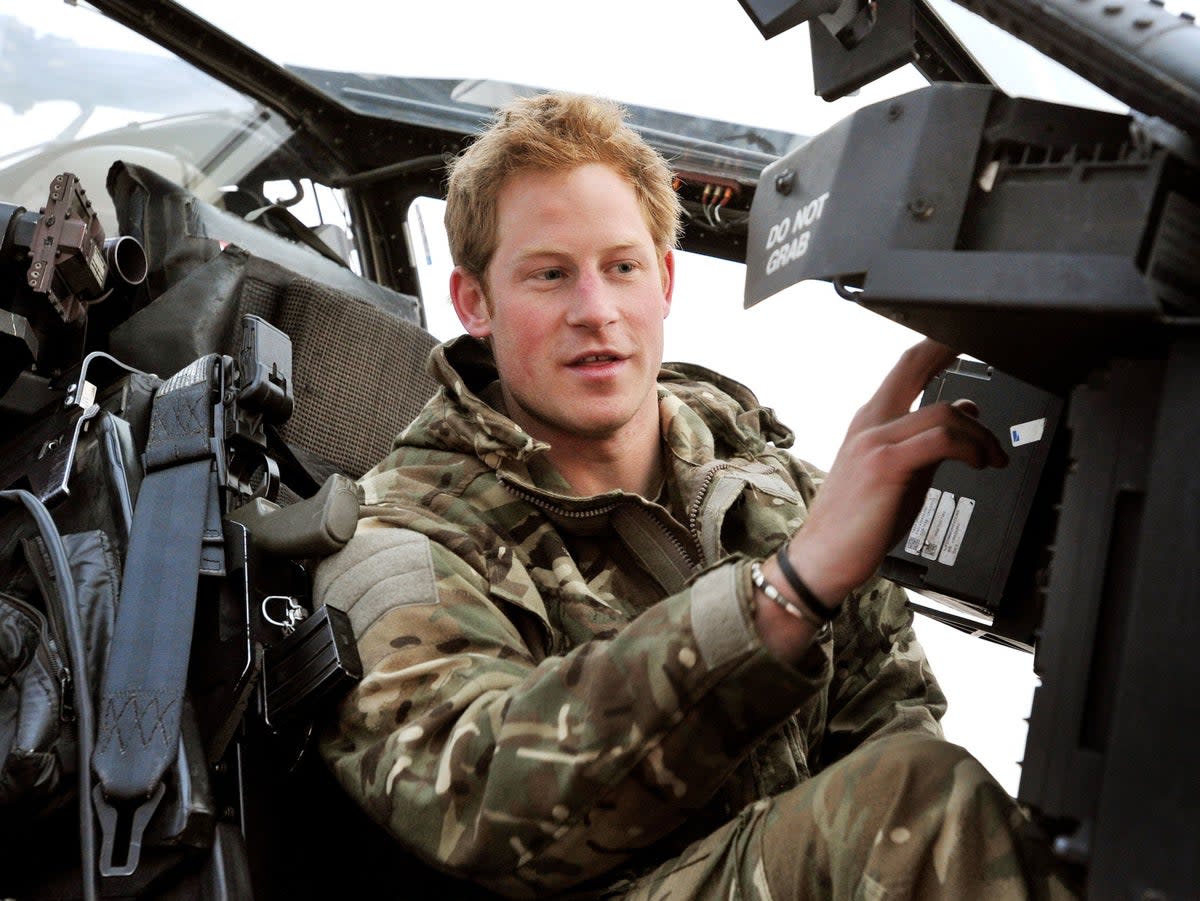Prince Harry’s military comrades dismayed at ‘unnecessary’ claim of 25 Taliban killings

- Oops!Something went wrong.Please try again later.
Prince Harry served bravely and well with the military in Afghanistan. One questions why he chose to announce that he had killed 25 Taliban fighters; it was not just distasteful but also raises the security risk for him and his family.
The Duke of Sussex does not glory in the deaths in his leaked memoir, Spare. But talking about those he killed from an Apache helicopter-gunship not as “people” but as “chess pieces” that “had to be taken off the board” sounds crass. It may be a mindset he needed to get into for combat, but saying this publicly about a fallen enemy, however much one may be against what they stand for, was the wrong thing to do.
It is surprising that the prince chose to introduce a body-count into the narrative of his Afghan experience. He had a good war, fulfilling his duties diligently and not seeking any special treatment for his royal status.
Along with a few colleagues, I had come across Harry in Helmand. His deployment was meant to be kept secret in a deal between the palace and the British media. It was a ludicrous proposition in a war covered by international media as well as international forces in the country, and his presence was exposed first by an Australian magazine and then the US website, Drudge Report.
After consultations between the government and the palace, the Ministry of Defence announced Harry was being brought back to London for his own security – and the security of those around him.
Harry wanted to let us know he preferred to stay and regretted having to leave early. His comrades seemed sorry to see him go. They spoke of him as a good soldier who they were glad to have alongside them.
There was no reason Harry could not have been based elsewhere in Afghanistan for the remainder of his tour. That he could have continued serving in the country was demonstrated when he returned there as an Apache helicopter pilot, four years later, without any attempt at a news embargo.
Many of Harry’s former comrades from the military stood by him during the attacks he and Meghan Markle had faced in recent times.
One officer, now colonel, who knew Harry in Afghanistan said recently: “Harry served his country in a war – how many of these people popping up now and accusing him of being unpatriotic have done that?
“Many of us feel rather sorry about what’s happening. It’s not just old soldiers who fade away, young ones do so as well. Harry will fade away when this circus is over: we’re losing him, and that’s a shame.”
But he now says Harry’s comment about killing 25 Talibs is “unnecessary.”
“Everyone knows killing the enemy is something one may have to do in war. One reflects on this privately, there’s no need to broadcast it. It’s a moral thing, but there are also obvious security implications in saying things like this.”
Another, in the Army Air Corps, wanted to point out: “Us Apache crews have to be particularly careful in what we say. What we do in theatre is often pretty kinetic and there are enemy casualties, there is the risk of terrorist attacks in retaliation, we are warned about this and Harry would know that.”
The reaction in Taliban Afghanistan to Harry’s comments has been relatively muted. Anas Haqqani, son of Jalaluddin Haqqani, the late leader of the Haqqani Network, said: “Mr. Harry! The ones you killed were not chess pieces, they were humans; they had families who were waiting for their return. Among the killers of Afghans, not many have your decency to reveal their conscience and confess to their war crimes.”
But there are posts on Islamist networks about “Muslim-killer Harry” and calls for retribution.
The Duke and Duchess of Sussex have spoken repeatedly about their concern over possible threats. They suggested that their security was withdrawn in Britain after they stepped back from royal duties.
In one episode of their Netflix series, Harry says: “I wonder what would have happened to us had we not got out when we did.” Meghan adds: “Our security is being pulled, everyone in the world knew where we were.”
He has spoken of his “security risk at birth for life,” remaining sixth in line to the throne and remaining high-profile even after his role within the royal family has changed.
There is no reason to doubt that Harry and his family face threats. Why, then, did he risk increasing the threat by discussing his kills in Afghanistan?

